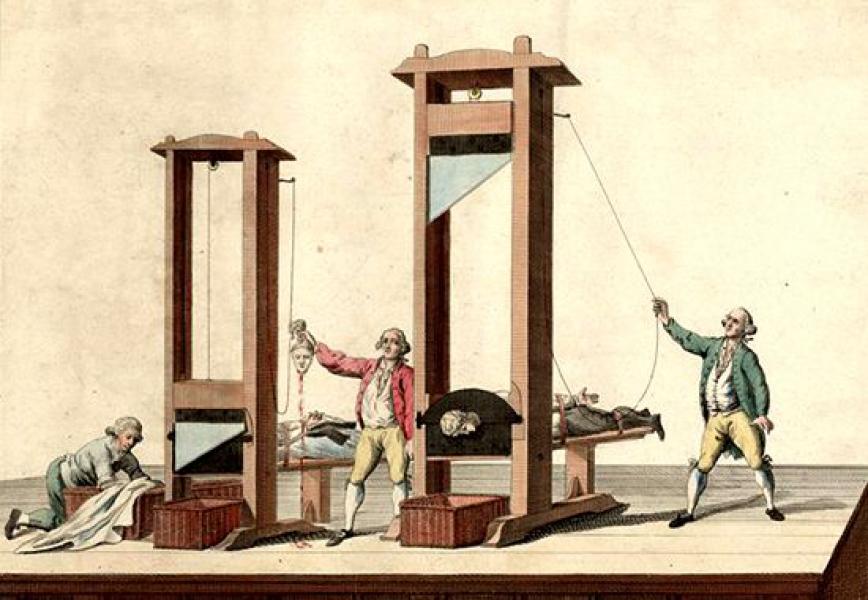We’re away until January 2, but we’re reposting some of our favorite pieces from 2018. Enjoy your holiday!
In 1788, a French blacksmith named Mathurin Louschart was killed in his home by a single blow to the head. The act was committed in the blink of an eye, but the feud motivating it had festered for months. Earlier that year, the deeply conservative Mathurin had apparently taken offense at his son Jean’s newfangled ideas about liberty and equality. Jean was vocal about his beliefs, which were stoking the fires of radicalism throughout France. Not content with throwing his son out of the family home, Mathurin attempted to punish him further by arranging to marry Jean’s girlfriend, Helen. Helen’s family was only too pleased to palm off their daughter to a vaunted member of the community, but Helen herself despaired at the prospect of being wrenched from Jean and shackled to a brooding old ogre for the rest of her life. Jean hatched a plan: he arrived one night at his father’s house to rescue Helen and ride off into the egalitarian sunset. But Mathurin interrupted their escape, and a fight ensued. Jean lashed out with a hammer. It struck Mathurin flush on the forehead, and the old man died instantly.
from The Paris Review http://bit.ly/2Vn6bjp

Comments
Post a Comment